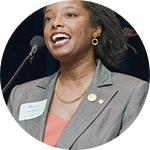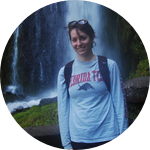About This Project
Fishery improvement projects, or FIPs, have emerged as a way for stakeholders to be involved in improving sustainability within fisheries. This research is a case study of an FIP in the Gulf of Mexico reef fish fishery, examining its use of the Conservation Alliance for Seafood Solutions' guidelines for FIPs credibly moving toward sustainability. The Conservation Alliance is a group of conservation NGOs with an interest in seafood sustainability.
Ask the Scientists
Join The DiscussionWhat is the context of this research?
The Marine Stewardship Council, or MSC, is an independent non-profit organization that certifies the ecological sustainability of fisheries. MSC-certified products are widely recognized by the use of the "blue check-mark" eco-label. Fisheries that don't currently meet the MSC standards can have a difficult time reaching those standards. Some non-profit organizations with an interest in sustainable seafood are assisting fisheries in reaching MSC standards through the use of fishery improvement projects.
A group of conservation-based non-profits formed the Conservation Alliance for Seafood Solutions. Together, these organizations created a set of guidelines outlining what characteristics are necessary in a FIP moving toward sustainability. These guidelines create a standard for FIPs, which ideally, companies will use when seeking sustainable seafood products.
This projects looks at a fishery improvement project in the Gulf of Mexico reef fish fishery, led by the Sustainable Fisheries Partnership. The Sustainable Fisheries Partnership is coordinating industry efforts in bringing this fishery to MSC certification level. More information on the FIP can be found at:
http://www.sustainablefish.org
The research will examine the theory of how the Conservation Alliance's guidelines are applied to this FIP and how the FIP addresses traditional areas of conflict between conservation and development, such as striking a balance between maximizing a fishery's profit and sustaining the fish stock.
What is the significance of this project?
Unsustainable fishing practices contribute to the decline of our oceans. Increased sustainability in fisheries is therefore crucial and a current hot topic. Fishery improvement projects (FIPs) are a relatively new tool in the field of sustainable fisheries, and research on their performance is sparse.
The Marine Stewardship Council (MSC) has been criticized for the low number of certification of traditional or developing nations' fisheries. Fishery improvement projects show potential to increase the number of fisheries able to achieve certification.
It is important to note that the MSC is not the only organization setting sustainability standards for fisheries. Although many FIPs currently set reaching MSC standards as the end goal, this is not the case for all FIPs present and future. Additionally, few FIPs are alike, even when working toward a common final goal. Different fisheries face different challenges in achieving sustainability. Having a credible process and a standard to measure is essential for FIPs, as is having a thorough understanding of this process.
This project looks at a fishery improvement project in the Gulf of Mexico reef fish fishery, led by the Sustainable Fisheries Partnership. This case is of particular importance, because data for this FIP is readily available, which should yield a more robust analysis.
What are the goals of the project?
Funding will be used mainly for professional transcription of recorded interviews into usable word documents. This will ensure better accuracy, and faster turn-around time than transcribing them myself.
Transcription costs depend on the length of the interview, and which company I use, and can range from $50 to $75 per interview. For this project, I anticipate conducting between 9 and 18 interviews.
A small portion of funding is required to purchase recording software, which is necessary to conduct interviews.
If given the opportunity to publish my work, I will acknowledge each and every donor in my publication.
Budget
Funds will cover the cost of transcribing interviews with stakeholders in the FIP. This research will collect data both from publicly available documentation of the FIP and from interviews with FIP stakeholders. Interviews will need to be transcribed before data can be extracted and analyzed. An experienced transcriptionist can accurately transcribe a one-hour interview in roughly two hours, a task that would take the inexperienced much longer.
Hiring a professional transcriptionist will free me up to focus more on my research and analysis.
Endorsed by
Meet the Team
Team Bio
Laura Deighan is currently a graduate student at the University of Washington working towards a Master's in Marine Affairs. Laura currently holds a Bachelor's of Science in marine biology. Laura is passionate about marine conservation and especially sustainable seafood. Laura is especially interested in cooperative sustainable seafood solutions that involve industry stakeholders. This project will fulfill Laura's Master's thesis requirement.Additional Information
Some notable references contributing to this project:
- S. R. Bush, H. Toonen, P. Oosterveer and A. P. J. Mol. 2013. The 'devils triangle' of MSC certification: Balancing credibility, accessibility and continuous improvement Marine Policy 37 288-293.
- J. Jacquet, J. Hocevar, S. Lai, P. Majluf, N. Pelletier, T. Pitcher, E. Sala, R. Sumaila and D. Pauly. 2010. Conserving wild fish in a sea of market-based efforts. Oryx. 44. 1 45-56.
- S. Ponte. 2008. Greener than thou: The political economy of fish ecolabeling and its local manifestations in South Africa. World Development. 36. 1. 159-175.
- U.N. FAO. 2012. The State of World Fisheries and Aquaculture - 2012. Rome. FAO Fisheries and Aquaculture Department, Food and Agricultural Organization of the United Nations. 209. http://www.fao.org/docrep/016/i2727e/i2727e00.htm...
Relevant Websites:
Project Backers
- 18Backers
- 105%Funded
- $740Total Donations
- $41.11Average Donation


